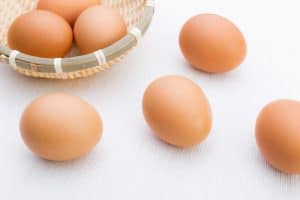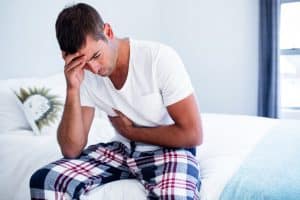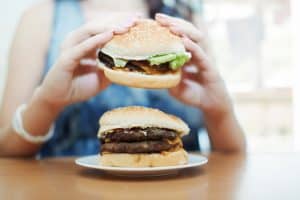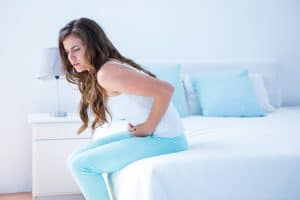
Health starts with dietary needs. Drink a lot of water and consume the right vitamins and minerals, and you can be on the way to a long, healthy life.
But Can You Eat Eggs With Gallstones?
Yes, eggs can be a part of your diet even if you are having issues with digestion.
If you have any type of gallbladder disease, you might be trying to determine what are the best and worst foods to eat with gallstones. You can consume the occasional egg even with gallstones. Since eggs are high in protein and low in fat, they can usually be consumed even if you are having troubles with your gallbladder. Just consider that you might want to limit the number of yolks you digest, as they can be high in cholesterol and that can inflame the gallbladder which then could cause more issues.
Foods to Help with Gallstones
Vegetables and fiber can help with gallstones, as can consuming a lot of water. There are also some meats that have a lot of fats that you should avoid if you have gallstones, and you should try not to have many fatty meats such as beef or fatty pieces of chicken like the skin. Gallbladder pain can be so bothersome that it could send you to the emergency room. If you are in the middle of an attack, consider switching up what you digest to only be vegetables, waters, and lean meats.
Men and Women Should Consider a Dietary Change
Gallbladder disease can be helped by following the right diet, and both women and men need to consider the right diet if they have frequent gallbladder attacks. Make sure you stick with any changes you make for longer than a day or two, as you really will only see benefits over the course of time with any dietary changes.

In reality, eggs should be a part of most diets, but they should never take over all of your meals, or even most of them. Do not have them every day of the week, but a couple of times for breakfast should be good for you no matter what dietary needs you have. If you need to monitor your cholesterol, consider just eating the egg whites and not the yolks.
Gallstones and Eggs – How Many Can You Eat?
If you have too many eggs in your diet, there is a likelihood there could be a negative effect on your health, so be sure to consume in moderation, like anything else that is a part of your dietary needs.
Eating Eggs as part of Gallbladder Diets
Eggs are not the worst food you can eat if you have gallbladder disease. Eating eggs can help your diet as the proteins can help you build muscle and reduce your body fat percentage, which can serve to help any problems you have with your gallbladder. However, that said, you do not want to eat a lot of eggs, specifically the yolks, as foods that are higher in cholesterol, like eggs, can contribute to gallstones. Eating eggs with gallbladder disease is a balance and you should not go all out and consume them liberally. Your body can safely digest some eggs, but do not overdo it, and try to avoid the yolks as much as you can.
“An ounce of prevention is worth a pound of cure.” That old quote is attributed to Benjamin Franklin, but he hit the nail on the head. Sometimes it is easier to prevent a health problem than it is to cure it. Issues with your gallbladder are no different, as the right vitamins and waters can help keep you healthy before gallstones even develop, which is easier than passing the stones after they exist.
Consider the following affects eggs can have on your digestive tract and your overall health:
- increased proteins can give you more energy
- yolks can cause increased cholesterol, which could cause some health issues
- if you have a mild egg allergy, you might experience diarrhea
You Could Be Surprised by the Change In Your Gallbladder!
Avoid feeling sick by focusing on the right food for your health, and you might be surprised by the positive effect the right meals can have on your gallbladder. You should consult a doctor for more information and to answer any questions you have if your digestion problems and nausea continue for more than a couple of days. Monitor the health of your stools and also the frequency of your bowel movements when you are considering the health of your digestive tract.

Nobody likes to feel sick or in pain, and often modifying your diet can help with gallbladder pain. While in some cases, it will not be enough to improve all of your symptoms, just eating right can help with gallbladder issues.
If you are still having a lot of pain, consider eliminating certain items. When eliminating anything to help your gallbladder, try to keep everything else the same that you consume, so you know if elimination works. For example, consume everything the same one week, but then the next week eliminate eggs. Do you feel better or worse? Then, you can add eggs back into your meals and monitor again.
The Best foods for a Gallbladder Diet
Ultimately, you want to reduce fat intake if you have gallbladder disease or any gallbladder symptoms, and certain foods are better than others to consume to help prevent gallbladder problems. The gallbladder stores bile. It can be removed, and the bile would just go directly to your small intestine. While surgery is usually very safe and can be beneficial, you might want to try to avoid gallbladder surgery, as if should be considered a last resort.
If you have gallstones or have a frequent gallbladder attack, consider switching your diet to be all lean meats, vegetables, and eat other foods that are high in fiber. Having a lean diet can help your small intestine, and possibly reduce gallbladder problems. Eggs can be a part of your diet, as they are high in protein, and not high in fats, but you should limit the amount you consume so gallbladder disease does not sneak up on you. In other words, eating eggs in moderation is fine but don’t overindulge!

No matter if you have gallbladder problems or not, adding more vegetables to a meal can benefit you in a lot of ways from reducing inflammation to increasing energy levels. Leaning towards more poultry, pork, and fish and less red meat could help some people as well.
Some of the best vegetables you can digest to help your gallbladder are:
- Leafy greens like spinach, kale, or collard greens
- Other green vegetables like beans or peas
- High fiber root vegetables like carrots
You can consume some meats and fish as part of your diet to give you protein and energy. Try the following meats:
- lean chicken – be sure to remove any skin or fatty components before cooking. The chicken is great for you if it is lean, but if you add in the fatty parts of the chicken this could easily send you into a flare of your gallbladder
- fish – fish is always a good choice, as even some of the fattier fish have good fats, meaning they should not negatively affect your health
- other meats – stay away from beef, but other meats like pork can be digested easily as long as you trim the fat off before eating
If you want a similar list of good drinks to digest for your gallbladder, the list is really just one: lots and lots of water. Avoid alcohol, sugary soft drinks, caffeinated coffee, and anything that can negatively stimulate your digestive tract. Until you are out of the woods and experiencing no symptoms, water is critical, as it can work to flush out anything that is negatively affecting your health.
When in doubt, remember that you cannot have too much water. Your digestive system is hurting, and it needs self-care; water can help remove all sorts of toxins from your system.
One last note about a healthy diet for your gallbladder – do not overlook nuts. If you need a snack, nuts are a good option as they are full of healthy fats and also give you the energy to get through your day. If you are cutting back on bad fats and carbs, nuts can be a key supplement to offer you an extra boost of energy in your day.
Are Eggs Bad for Gallbladder disease?
Any good physician will tell you that with a gallstone diet, you should try to avoid eating a lot of fats. That is arguably the most important facet of any dietary needs you have. The fewer fats you consume, the less likely your gallbladder troubles will continue, if you continue to consume a lot of fats, you will have a hard time. The gallbladder works hardest when it is digesting fats, so if you want to give it a little bit of a break, cut them out of your dietary needs for a bit.
While we cannot provide specific medical advice, it is clear that any gall bladder diet should avoid fatty foods. You should also aim for rapid weight loss if you are overweight, and reducing fats in your diet can help you drop a few pounds, which can help patients with gallbladder disease recover quicker.
A gallbladder attack can be quite painful, but fortunately, a diet that is low in fats can help reduce obesity and possibly avoid gallbladder attacks completely. Consider an elimination diet in which you remove any foods that are high in fats. You can eat foods like avocado that have fats, but they are considered fats that are good for your health.
Considering avoiding foods like hamburgers and others that are high in fats if you want to improve the condition of your gallbladder. Cheeses are usually also high in fat and should be avoided. That means that if you are used to adding some cheese to your scrambled eggs, you might want to hold off on the cheese as long as you are concerned about digestion and your gallbladder.

What is Bile?
The gall bladder works to move bile from your liver to your small intestine. Without the gallbladder, bile would skip the middleman and go directly to your intestine. This is not the worst thing in the world, and many people survive just fine after surgery to remove their gallbladder. Surgery is not the worst thing, but like any surgery, it should be avoided if possible and considered the last resort after you have tried everything else for your health.
Bile salts are one of the things that make up bile, and these bile salts help your body digest fats and they also help with the absorption of vitamins, and it works in conjunction with your gallbladder. Bile is essentially stored in the gallbladder while you are between meals and still digesting, and a good diet can help the bile flow smoothly, possibly preventing the formation of gallstones and other symptoms of gallbladder disease.

The function of the gallbladder is primarily to manage the bile duct and all bile that is produced, so if you are having problems with your gallbladder, it is likely your bile duct is affected. Consider fasting or flooding your system with water for a few days to try to cleanse out any stones or problems with your digestion.
Conclusion
Consider cooking most meals from scratch while you work to establish a new baseline for your digestive system. Your health will thank you, and you will gain a better understanding of what foods trigger attacks in your system, and what you can consume to help yourself feel a little bit better. As you cook, keep diligent track of the ingredients you use, and then you can isolate any ingredients that might trigger a flare in your body. Then, eliminate those foods and see if your condition improves.
Fortunately, there are many ways to improve your health, and with the right updates to your diet, you can hopefully avoid surgery and improve the health of your gallbladder.